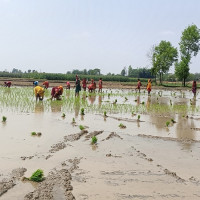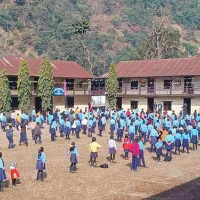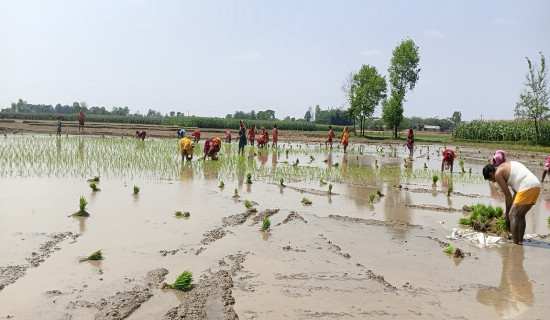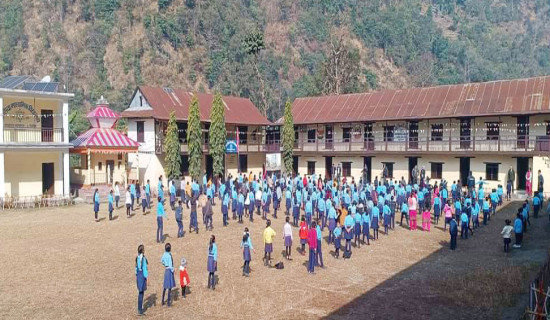- Tuesday, 6 May 2025
Discussions on policy document begins in Parliament
By A Staff Reporter,Kathmandu, May 6: Lawmakers from various political parties have registered 37 amendments to the government’s policies and programmes for the upcoming fiscal year 2025/26, while discussions continue in the House of Representatives.
Speaker Devraj Ghimire informed the House on Monday that the amendment proposals were registered after the government unveiled its annual blueprint for national development and reform on Friday last week. The President presented the policy and programme in a joint sitting of the Federal Parliament on May 2.
During Sunday’s meeting,
lawmakers from the ruling and opposition parties took part in the discussion, offering their suggestions and concerns on the government's policy priorities.
While many lawmakers acknowledged the intent behind the policy, they pointed out areas they believed required more clarity, detail, or improvement.
Former Minister and CPN (Maoist Centre) lawmaker Sudan Kirati said the policy lacked a clear roadmap to address key national issues such as quality public education, accessible healthcare, employment generation, and good governance. He said, “The policy mentions goals, but fails to clearly outline how those goals will be achieved. The public expects concrete plans,” he said.
He also pointed out the absence of a specific action plan to remove Nepal from the Financial Action Task Force’s grey list. “The government's commitment to addressing financial transparency issues is welcome, but it should have included a structured roadmap,” Kirati added.
Another senior Maoist Centre leader, Janardan Sharma, proposed removing several sections of the policy, arguing they did not address economic restructuring or promote self-employment effectively. He highlighted the need to support micro and home-based enterprises, as well as small and medium businesses, as a way to strengthen the economy and reduce dependence on foreign employment.
Sharma also stressed the importance of good governance and transparency, calling for asset investigations of public officials and a review of large infrastructure projects to ensure they are cost-effective and beneficial to the public.
Independent lawmaker Dr. Amaresh Kumar Singh questioned whether the policy was inclusive and representative of all communities. He also raised issues related to infrastructure development, such as delays in road projects and the need to improve public education standards. “This is not just about having plans on paper, it’s about how they are implemented on the ground,” he said.
CPN (Maoist Centre) leader and former Minister Shakti Bahadur Basnet noted that the policy was cautious in nature and lacked bold decisions. “Given the current economic and social challenges, we expected a more transformative approach,” he said.
Lawmaker and former Finance Minister Barshaman Pun pointed out procedural delays in presenting the ‘programme’ section of the annual document. He noted that discussions began without the House receiving the full text of the policy and programme, which could hinder the budget-making process. He also said the government should clearly present strategies to overcome economic slowdown and revive productivity.
In response, Minister for Physical Infrastructure and Transport Devendra Dahal, representing the Prime Minister, tabled a motion to begin formal deliberations on the policy and programme. The detailed discussions are expected to take place in the coming days, leading up to the budget announcement.
Besides the amendment proposals, the House also discussed other issues during the zero hour.
Speaker Ghimire directed the government to investigate the death of Prissa Sah, a Nepali student pursuing MBBS studies in Odisha, India. Lawmakers expressed concern over the safety of Nepali students abroad, recalling that a similar incident occurred at the same university last year.
The lawmakers also raised various local and national concerns, such as road improvement works before the monsoon, support for disaster-affected communities, action against land encroachment, protection of public open spaces, proper management of public toilets, and investigations into recent arrests involving Nepali citizens.















